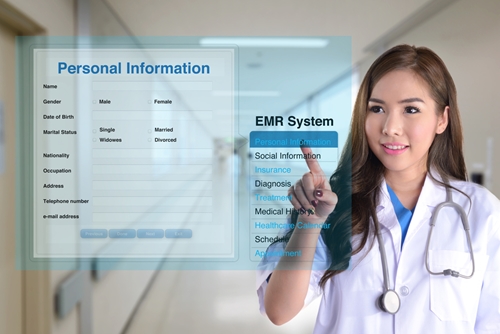Proposed changes for meaningful use
At a news conference earlier this week, the Centers for Medicare & Medicaid Services (CMS) announced that the meaningful use incentive program for electronic health records (EHR) will be incorporated into the Merit-Based Incentive Payment System. If finalized, this change would go into effect on the first day of 2017.
The announcement was made in a press release from the agency. Afterward, Andy Slavitt, the CMS acting administrator, detailed the reasons for the switch to reporters, FedScoop reported.
"The emphasis away from the use of IT to one that supports patient care supported by better and more connected technology" — one that's "far simpler, less burdensome and more flexible," explained Slavitt.
Simplest overview of Advancing Care Information proposal (successor to Meaningful Use) https://t.co/i0W2gHsPqO
— Andy Slavitt (@ASlavitt) April 29, 2016
The proposed guidelines, known as Advancing Care Information, do not have as many qualifying metrics as the current ones. In addition, there are more ways that doctors can meet them, a measure that is intended to shift IT from a burden on providers to a tool that can be used to enhance patient outcomes. In a blog post about the change, Slavitt and National Coordinator, Office of the National Coordinator for Health IT Karen DeSalvo, outlined three priorities for the program:
- Improved interoperability, particularly with respect to doctors and patients being able to easily share data across practices.
- Increase flexibility, in terms of how providers can meet the standards.
- User-friendliness, with regards to technology. Design must be intuitive enough for a physician to use as part of normal patient treatment.
The number of reporting measures would drop from its current 18 to 11, which would represent the lowest-ever figure. In addition, certain physicians would not have to report, provided that EHR technology is not applicable to their particular area of practice. Others would be allowed to report as a group, which could save time and resources, in addition to promoting interoperability. In the post, Slavitt and DeSalvo expressed optimism for the possibilities of the switch, writing:
"Through this new direction, we look forward to developers and entrepreneurs taking the opportunity to design around the everyday needs of users, rather than designing a one-size-fits-all approach. Already, developers that provide over 90 percent of electronic health records used by U.S. hospitals have made public commitments to make it easier for individuals to access their own data; not block information; and speak the same language. CMS and ONC will continue to use our authorities to eliminate barriers to interoperability."
This update does not mean the end of meaningful use. At current time, the change does not affect hospitals or Medicaid providers. However, Medscape reports, Slavitt is currently investigating whether changes to those programs are possible, suggesting that they could see updates as well.



